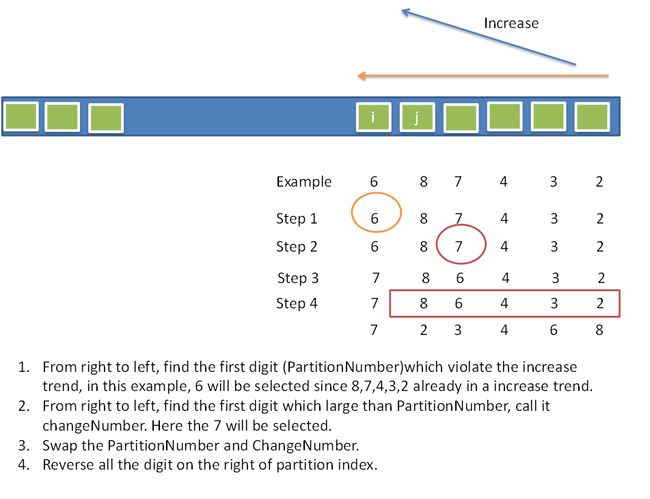- 48. 旋转图像 - 力扣(LeetCode)
Fiee-77
#数组leetcode算法python数据结构数组
题目:给定一个n×n的二维矩阵matrix表示一个图像。请你将图像顺时针旋转90度。你必须在原地旋转图像,这意味着你需要直接修改输入的二维矩阵。请不要使用另一个矩阵来旋转图像。示例1:输入:matrix=[[1,2,3],[4,5,6],[7,8,9]]输出:[[7,4,1],[8,5,2],[9,6,3]]示例2:输入:matrix=[[5,1,9,11],[2,4,8,10],[13,3,6,
- 图论算法经典题目解析:DFS、BFS与拓扑排序实战
周童學
数据结构与算法深度优先算法图论
图论算法经典题目解析:DFS、BFS与拓扑排序实战图论问题是算法面试中的高频考点,本博客将通过四道LeetCode经典题目(均来自"Top100Liked"题库),深入讲解图论的核心算法思想和实现技巧。涵盖DFS、BFS、拓扑排序和前缀树等知识点,每道题配有Java实现和易错点分析。1.岛屿数量(DFS遍历)问题描述给定一个由'1'(陆地)和'0'(水)组成的二维网格,计算岛屿的数量。岛屿由水平或
- 代码随想录算法训练营第三十五天
01背包问题二维题目链接01背包问题二维题解importjava.util.Scanner;publicclassMain{publicstaticvoidmain(String[]args){Scannersc=newScanner(System.in);intM=sc.nextInt();intN=sc.nextInt();int[]space=newint[M];int[]value=new
- Java集合遍历的几种方式
Warren98
Javajavawindows开发语言后端springboot硬件工程笔记
迭代器不依赖索引遍历完毕后,指针不会复位.遍历时,不能使用集合的方法进行增加或删除.只能使用一次next()方法.主要方法publicinterfaceIterator{Iteratoriterator();//返回迭代器对象,默认指向当前集合的0索引booleanhasNext();//用于判断集合中是否还有下一个元素,有的话返回trueEnext();//返回迭代器的下一个元素,并将迭代器的指
- 867. 转置矩阵--leetcode
黄油烤菠萝
算法数据结构leetcodejava
867.转置矩阵简单提示给你一个二维整数数组matrix,返回matrix的转置矩阵。矩阵的转置是指将矩阵的主对角线翻转,交换矩阵的行索引与列索引。示例1:输入:matrix=[[1,2,3],[4,5,6],[7,8,9]]输出:[[1,4,7],[2,5,8],[3,6,9]]示例2:输入:matrix=[[1,2,3],[4,5,6]]输出:[[1,4],[2,5],[3,6]]提示:m==
- 关于leetcode第56题合并重复区间的解析
冬天里的懒喵
[toc]1.题目描述给出一个区间的集合,请合并所有重叠的区间。示例1:输入:[[1,3],[2,6],[8,10],[15,18]]输出:[[1,6],[8,10],[15,18]]解释:区间[1,3]和[2,6]重叠,将它们合并为[1,6].示例2:输入:[[1,4],[4,5]]输出:[[1,5]]解释:区间[1,4]和[4,5]可被视为重叠区间。https://leetcode-cn.co
- Leetcode 热题100道刷题
Not--found
leetcode算法
哈希算法哈希表(HashTable)是一种根据关键字直接访问内存存储位置的数据结构。通过哈希表,数据元素的存放位置和数据元素的关键字之间建立起某种对应关系,建立这种对应关系的函数称为哈希函数。1.两数之和(Leetcode1)给定一个整数数组nums和一个整数目标值target,请你在该数组中找出和为目标值target的那两个整数,并返回它们的数组下标。你可以假设每种输入只会对应一个答案。但是,数
- LeetCode热题100:哈希
Intro_Nitro
LeetCode热题100哈希算法leetcode
1.两数之和题目链接:两数之和题目描述:给定一个整数数组nums和一个整数目标值target,请你在该数组中找出和为目标值target的那两个整数,并返回它们的数组下标。你可以假设每种输入只会对应一个答案。但是,数组中同一个元素在答案里不能重复出现。你可以按任意顺序返回答案。解题思路:我们创建一个哈希表,以数组的值做key,索引做value。对于每一个x,我们首先查询哈希表中是否存在target-
- C++算法之单调栈
ぼっち・ざ・ろっく!-後藤一里|ポチ
C++算法c++java开发语言
C++算法中的单调栈:从入门到实战指南大家好!今天我们来聊聊C++算法中一个超级实用的工具——单调栈。别被名字吓到,它其实很简单,就像排队买奶茶一样:队伍总是从矮到高(或从高到矮)排得整整齐齐,这样处理问题时就特别高效。在算法面试里,单调栈是高频考点,LeetCode上很多难题(比如找“下一个更大元素”或算“柱状图最大面积”)都能用它轻松搞定。这篇文章,我会用接地气的语言,带大家一步步理解单调栈的
- [LeetCode 169/229] Majority Element I/II (easy / medium)
灰睛眼蓝
LeetCode169IGivenanarrayofsizen,findthemajorityelement.Themajorityelementistheelementthatappearsmorethan⌊n/2⌋times.Youmayassumethatthearrayisnon-emptyandthemajorityelementalwaysexistinthearray.Example
- [leetcode]355. Design Twitter
大米GoGoGo
leetcode数据结构leetcodedesign
题目链接:https://leetcode.com/problems/design-twitter/题意:这是一个设计类题目,本题要求设计一个Twitter,主要支持以下几种操作:发表一条状态postTweet(userId,tweetId)关注某个用户follow(followerId,followeeId):Followerfollowsafollowee对某个用户取消关注unfollow(f
- 【LeetCode】算法详解#8 ---螺旋矩阵
Fanxt_Ja
算法算法leetcode矩阵java辅助空间
1.题目介绍给定一个m行n列的矩阵matrix,请按照顺时针螺旋顺序,返回矩阵中的所有元素。提示:m==matrix.lengthn==matrix[i].length1spiralOrder(int[][]matrix){intm=matrix.length;intn=matrix[0].length;//定义临时数组记录访问位置int[][]temp=newint[matrix.length]
- 强化学习入门三(SARSA)
第六五签
算法模型算法人工智能
SARSA算法详解SARSA是强化学习中另一种经典的时序差分(TD)学习算法,与Q-Learning同属无模型(model-free)算法,但在更新策略上有显著差异。SARSA的名称来源于其更新公式中涉及的五个元素:状态(State)、动作(Action)、奖励(Reward)、下一状态(NextState)、下一动作(NextAction),即(S,A,R,S’,A’)。SARSA与Q-Lear
- Leetcode力扣解题记录--第136题(查找单数)
不愧是你呀
Leetcodeleetcode算法数据结构
题目链接:136.只出现一次的数字-力扣(LeetCode)题目描述给你一个非空整数数组nums,除了某个元素只出现一次以外,其余每个元素均出现两次。找出那个只出现了一次的元素。你必须设计并实现线性时间复杂度的算法来解决此问题,且该算法只使用常量额外空间。示例1:输入:nums=[2,2,1]输出:1示例2:输入:nums=[4,1,2,1,2]输出:4示例3:输入:nums=[1]输出:1题目作
- leetcode--334--递增的三元子序列
minningl
题目:给定一个未排序的数组,判断这个数组中是否存在长度为3的递增子序列。数学表达式如下:如果存在这样的i,j,k,且满足0≤i&nums){intfirst=INT_MAX;intsecond=INT_MAX;for(intnum:nums){if(num<=first){first=num;}elseif(num<=second){second=num;}else{returntrue;}}re
- 从手写 Promise 到 Event Loop:前端异步面试题全解读
你真的搞懂了JS的异步吗?面试官一个“nextTick和微任务的区别”,别说新手,连三年经验的工程师也常答不上来。开场:异步机制,就是面试里的“送命题”你是不是也有过这样的经历:“你能手写一个Promise吗?”“你知道async/await背后是怎么工作的?”“setTimeout(fn,0)一定最先执行吗?”听起来是基础题,但很多人答得云里雾里。异步是JS的灵魂,但也因为它涉及事件循环、任务队
- LeetCode|Day26|191. 位 1 的个数|Python刷题笔记
Norvyn_7
leetcode刷题leetcodepython笔记
LeetCode|Day26|191.位1的个数|Python刷题笔记️本文属于【LeetCode简单题百日计划】系列点击查看系列总目录>>题目简介题号:191.位1的个数难度:简单题目链接:点击跳转题目描述编写一个函数,接收一个无符号整数n,返回其二进制表示中"1"的个数。这个问题通常被称为HammingWeight(汉明重量)。示例1:输入:n=11(二进制为00000000000000000
- LeetCode|Day19|14. 最长公共前缀|Python刷题笔记
Norvyn_7
leetcode刷题leetcodepython笔记
LeetCode|Day19|14.最长公共前缀|Python刷题笔记️本文属于【LeetCode简单题百日计划】系列点击查看系列总目录>>题目简介题号:14.最长公共前缀难度:简单题目链接:点击跳转题目描述(简要)编写一个函数来查找字符串数组中的最长公共前缀。如果不存在公共前缀,返回空字符串""。示例:输入:strs=["flower","flow","flight"]输出:"fl"输入:str
- LeetCode|Day10|917. 仅仅反转字母|Python刷题笔记
Norvyn_7
leetcode刷题leetcodepython笔记
LeetCode|Day10|917.仅仅反转字母|Python刷题笔记️本文属于【LeetCode简单题百日计划】系列点击查看系列总目录>>题目简介题号:917.仅仅反转字母难度:简单题目链接:点击跳转题目描述(简要)给你一个字符串s,仅反转其中的字母字符,非字母字符保持原地不动。示例:输入:s="a-bC-dEf-ghIj"输出:"j-Ih-gfE-dCba"解法:双指针法classSolut
- LeetCode|Day15|125. 验证回文串|Python刷题笔记
Norvyn_7
leetcode刷题leetcodepython笔记
LeetCode|Day15|125.验证回文串|Python刷题笔记️本文属于【LeetCode简单题百日计划】系列点击查看系列总目录>>题目简介题号:125.验证回文串难度:简单题目链接:点击跳转题目描述(简要)给定一个字符串s,判断它是否是回文串,仅考虑字母和数字字符,并忽略大小写。示例:输入:s="Aman,aplan,acanal:Panama"输出:true解释:"amanaplana
- LeetCode|Day18|20. 有效的括号|Python刷题笔记
Norvyn_7
leetcode刷题leetcodepython笔记
LeetCode|Day18|20.有效的括号|Python刷题笔记️本文属于【LeetCode简单题百日计划】系列点击查看系列总目录>>题目简介题号:20.有效的括号难度:简单题目链接:点击跳转题目描述(简要)判断一个字符串中的括号是否有效。括号包括()[]{}左右匹配;顺序也必须正确;空字符串是有效括号。示例:输入:s="()[]{}"输出:true输入:s="(]"输出:false解法:栈+
- leetcode0954. 二倍数对数组-medium
智趣代码实验室
Leetcode算法c++leetcode数据结构
1题目:二倍数对数组官方标定难度:中给定一个长度为偶数的整数数组arr,只有对arr进行重组后可以满足“对于每个0&arr){std::sort(arr.begin(),arr.end(),[](inta,intb){returnabs(a)>abs(b);});unordered_mapl;for(inti:arr){if(l[i*2]){l[i*2]--;}else{l[i]++;}}for(
- [LeetCode 376] 摆动序列
来到了没有知识的荒原
376.摆动序列方法0出自评论区这位大佬,真的tql%%%思路其实和下面方法4的状态自动机差不多,但代码就是简洁很多。classSolution{public:intwiggleMaxLength(vector&nums){intn=nums.size();if(nnums[i-1]){up=down+1;}if(nums[i]&nums){if(nums.size()nums[i]){STATE
- vscode 找不到python解释器,VS Code找不到python 3解释器
miao君
vscode找不到python解释器
IaminstallingPython3.7.2forthefirsttime,andI'musingtheVSCodepythonextension.WhenIrunpython-VIgetPython2.7.10whichisnotcorrect!WhenIselecttheusr/local/bin/python3interpreterinVSCodeIgetthiserrorwhenrun
- LeetCode 852:山脉数组的峰顶索引解析与实现
LeetCode852:山脉数组的峰顶索引解析与实现题目描述给定一个长度为n的整数山脉数组arr,其中的值先递增到一个峰值元素,然后递减。要求返回峰值元素的下标。题目要求必须设计并实现时间复杂度为O(log(n))的解决方案。示例示例1:输入:arr=[0,1,0]输出:1示例2:输入:arr=[0,2,1,0]输出:1示例3:输入:arr=[0,10,5,2]输出:1提示3arr[i+1]峰值元
- Tailwind CSS与服务器端渲染:SSR项目样式处理
AI实战架构笔记
AI架构开发实战css前端ai
TailwindCSS与服务器端渲染:SSR项目样式处理关键词:TailwindCSS、服务器端渲染、SSR、样式处理、性能优化、Next.js、Nuxt.js摘要:本文将深入探讨如何在服务器端渲染(SSR)项目中高效使用TailwindCSS。我们将从基本原理出发,分析Tailwind在SSR环境下的独特挑战,提供完整的解决方案,并通过实际案例展示最佳实践。文章涵盖性能优化策略、常见问题解决以及
- 差分数组巧解拼车难题
lbflyo
数据结构
力扣1094https://leetcode.cn/problems/car-pooling/车上最初有capacity个空座位。车只能向一个方向行驶(也就是说,不允许掉头或改变方向)给定整数capacity和一个数组trips,trip[i]=[numPassengersi,fromi,toi]表示第i次旅行有numPassengersi乘客,接他们和放他们的位置分别是fromi和toi。这些位
- leetcode--1189--“气球” 的最大数量
minningl
题目:给你一个字符串text,你需要使用text中的字母来拼凑尽可能多的单词"balloon"(气球)。字符串text中的每个字母最多只能被使用一次。请你返回最多可以拼凑出多少个单词"balloon"。示例1:输入:text="nlaebolko"输出:1示例2:输入:text="loonbalxballpoon"输出:2示例3:输入:text="leetcode"输出:0提示:1dt={{'b'
- LeetCode - 字符串解码(栈数据结构/递归法)/ 接雨水(重复遍历/双指针法)
葵续浅笑
算法leetcode
欢迎光临小站:致橡树字符串解码给定一个经过编码的字符串,返回它解码后的字符串。编码规则为:k[encoded_string],表示其中方括号内部的encoded_string正好重复k次。注意k保证为正整数。你可以认为输入字符串总是有效的;输入字符串中没有额外的空格,且输入的方括号总是符合格式要求的。此外,你可以认为原始数据不包含数字,所有的数字只表示重复的次数k,例如不会出现像3a或2[4]的输
- LeetCode 391:完美矩形
生当鼎食死封侯
算法leetcode算法职场和发展
LeetCode391:完美矩形问题本质:精确覆盖的两个核心条件给定若干轴对齐的小矩形,判断它们是否能恰好覆盖一个大矩形(无重叠、无间隙)。需满足:面积守恒:所有小矩形的面积和等于大矩形的面积。顶点唯一:除大矩形的4个顶点外,其他顶点必须出现偶数次(重叠时顶点会被覆盖两次,间隙则会导致顶点缺失)。核心思路:面积+顶点统计1.面积校验遍历所有小矩形,计算大矩形的边界(最小左边界left、最小下边界b
- sql统计相同项个数并按名次显示
朱辉辉33
javaoracle
现在有如下这样一个表:
A表
ID Name time
------------------------------
0001 aaa 2006-11-18
0002 ccc 2006-11-18
0003 eee 2006-11-18
0004 aaa 2006-11-18
0005 eee 2006-11-18
0004 aaa 2006-11-18
0002 ccc 20
- Android+Jquery Mobile学习系列-目录
白糖_
JQuery Mobile
最近在研究学习基于Android的移动应用开发,准备给家里人做一个应用程序用用。向公司手机移动团队咨询了下,觉得使用Android的WebView上手最快,因为WebView等于是一个内置浏览器,可以基于html页面开发,不用去学习Android自带的七七八八的控件。然后加上Jquery mobile的样式渲染和事件等,就能非常方便的做动态应用了。
从现在起,往后一段时间,我打算
- 如何给线程池命名
daysinsun
线程池
在系统运行后,在线程快照里总是看到线程池的名字为pool-xx,这样导致很不好定位,怎么给线程池一个有意义的名字呢。参照ThreadPoolExecutor类的ThreadFactory,自己实现ThreadFactory接口,重写newThread方法即可。参考代码如下:
public class Named
- IE 中"HTML Parsing Error:Unable to modify the parent container element before the
周凡杨
html解析errorreadyState
错误: IE 中"HTML Parsing Error:Unable to modify the parent container element before the child element is closed"
现象: 同事之间几个IE 测试情况下,有的报这个错,有的不报。经查询资料后,可归纳以下原因。
- java上传
g21121
java
我们在做web项目中通常会遇到上传文件的情况,用struts等框架的会直接用的自带的标签和组件,今天说的是利用servlet来完成上传。
我们这里利用到commons-fileupload组件,相关jar包可以取apache官网下载:http://commons.apache.org/
下面是servlet的代码:
//定义一个磁盘文件工厂
DiskFileItemFactory fact
- SpringMVC配置学习
510888780
springmvc
spring MVC配置详解
现在主流的Web MVC框架除了Struts这个主力 外,其次就是Spring MVC了,因此这也是作为一名程序员需要掌握的主流框架,框架选择多了,应对多变的需求和业务时,可实行的方案自然就多了。不过要想灵活运用Spring MVC来应对大多数的Web开发,就必须要掌握它的配置及原理。
一、Spring MVC环境搭建:(Spring 2.5.6 + Hi
- spring mvc-jfreeChart 柱图(1)
布衣凌宇
jfreechart
第一步:下载jfreeChart包,注意是jfreeChart文件lib目录下的,jcommon-1.0.23.jar和jfreechart-1.0.19.jar两个包即可;
第二步:配置web.xml;
web.xml代码如下
<servlet>
<servlet-name>jfreechart</servlet-nam
- 我的spring学习笔记13-容器扩展点之PropertyPlaceholderConfigurer
aijuans
Spring3
PropertyPlaceholderConfigurer是个bean工厂后置处理器的实现,也就是BeanFactoryPostProcessor接口的一个实现。关于BeanFactoryPostProcessor和BeanPostProcessor类似。我会在其他地方介绍。PropertyPlaceholderConfigurer可以将上下文(配置文件)中的属性值放在另一个单独的标准java P
- java 线程池使用 Runnable&Callable&Future
antlove
javathreadRunnablecallablefuture
1. 创建线程池
ExecutorService executorService = Executors.newCachedThreadPool();
2. 执行一次线程,调用Runnable接口实现
Future<?> future = executorService.submit(new DefaultRunnable());
System.out.prin
- XML语法元素结构的总结
百合不是茶
xml树结构
1.XML介绍1969年 gml (主要目的是要在不同的机器进行通信的数据规范)1985年 sgml standard generralized markup language1993年 html(www网)1998年 xml extensible markup language
- 改变eclipse编码格式
bijian1013
eclipse编码格式
1.改变整个工作空间的编码格式
改变整个工作空间的编码格式,这样以后新建的文件也是新设置的编码格式。
Eclipse->window->preferences->General->workspace-
- javascript中return的设计缺陷
bijian1013
JavaScriptAngularJS
代码1:
<script>
var gisService = (function(window)
{
return
{
name:function ()
{
alert(1);
}
};
})(this);
gisService.name();
&l
- 【持久化框架MyBatis3八】Spring集成MyBatis3
bit1129
Mybatis3
pom.xml配置
Maven的pom中主要包括:
MyBatis
MyBatis-Spring
Spring
MySQL-Connector-Java
Druid
applicationContext.xml配置
<?xml version="1.0" encoding="UTF-8"?>
&
- java web项目启动时自动加载自定义properties文件
bitray
javaWeb监听器相对路径
创建一个类
public class ContextInitListener implements ServletContextListener
使得该类成为一个监听器。用于监听整个容器生命周期的,主要是初始化和销毁的。
类创建后要在web.xml配置文件中增加一个简单的监听器配置,即刚才我们定义的类。
<listener>
<des
- 用nginx区分文件大小做出不同响应
ronin47
昨晚和前21v的同事聊天,说到我离职后一些技术上的更新。其中有个给某大客户(游戏下载类)的特殊需求设计,因为文件大小差距很大——估计是大版本和补丁的区别——又走的是同一个域名,而squid在响应比较大的文件时,尤其是初次下载的时候,性能比较差,所以拆成两组服务器,squid服务于较小的文件,通过pull方式从peer层获取,nginx服务于较大的文件,通过push方式由peer层分发同步。外部发布
- java-67-扑克牌的顺子.从扑克牌中随机抽5张牌,判断是不是一个顺子,即这5张牌是不是连续的.2-10为数字本身,A为1,J为11,Q为12,K为13,而大
bylijinnan
java
package com.ljn.base;
import java.util.Arrays;
import java.util.Random;
public class ContinuousPoker {
/**
* Q67 扑克牌的顺子 从扑克牌中随机抽5张牌,判断是不是一个顺子,即这5张牌是不是连续的。
* 2-10为数字本身,A为1,J为1
- 翟鸿燊老师语录
ccii
翟鸿燊
一、国学应用智慧TAT之亮剑精神A
1. 角色就是人格
就像你一回家的时候,你一进屋里面,你已经是儿子,是姑娘啦,给老爸老妈倒怀水吧,你还觉得你是老总呢?还拿派呢?就像今天一样,你们往这儿一坐,你们之间是什么,同学,是朋友。
还有下属最忌讳的就是领导向他询问情况的时候,什么我不知道,我不清楚,该你知道的你凭什么不知道
- [光速与宇宙]进行光速飞行的一些问题
comsci
问题
在人类整体进入宇宙时代,即将开展深空宇宙探索之前,我有几个猜想想告诉大家
仅仅是猜想。。。未经官方证实
1:要在宇宙中进行光速飞行,必须首先获得宇宙中的航行通行证,而这个航行通行证并不是我们平常认为的那种带钢印的证书,是什么呢? 下面我来告诉
- oracle undo解析
cwqcwqmax9
oracle
oracle undo解析2012-09-24 09:02:01 我来说两句 作者:虫师收藏 我要投稿
Undo是干嘛用的? &nb
- java中各种集合的详细介绍
dashuaifu
java集合
一,java中各种集合的关系图 Collection 接口的接口 对象的集合 ├ List 子接口 &n
- 卸载windows服务的方法
dcj3sjt126com
windowsservice
卸载Windows服务的方法
在Windows中,有一类程序称为服务,在操作系统内核加载完成后就开始加载。这里程序往往运行在操作系统的底层,因此资源占用比较大、执行效率比较高,比较有代表性的就是杀毒软件。但是一旦因为特殊原因不能正确卸载这些程序了,其加载在Windows内的服务就不容易删除了。即便是删除注册表中的相 应项目,虽然不启动了,但是系统中仍然存在此项服务,只是没有加载而已。如果安装其他
- Warning: The Copy Bundle Resources build phase contains this target's Info.plist
dcj3sjt126com
iosxcode
http://developer.apple.com/iphone/library/qa/qa2009/qa1649.html
Excerpt:
You are getting this warning because you probably added your Info.plist file to your Copy Bundle
- 2014之C++学习笔记(一)
Etwo
C++EtwoEtwoiterator迭代器
已经有很长一段时间没有写博客了,可能大家已经淡忘了Etwo这个人的存在,这一年多以来,本人从事了AS的相关开发工作,但最近一段时间,AS在天朝的没落,相信有很多码农也都清楚,现在的页游基本上达到饱和,手机上的游戏基本被unity3D与cocos占据,AS基本没有容身之处。so。。。最近我并不打算直接转型
- js跨越获取数据问题记录
haifengwuch
jsonpjsonAjax
js的跨越问题,普通的ajax无法获取服务器返回的值。
第一种解决方案,通过getson,后台配合方式,实现。
Java后台代码:
protected void doPost(HttpServletRequest req, HttpServletResponse resp)
throws ServletException, IOException {
String ca
- 蓝色jQuery导航条
ini
JavaScripthtmljqueryWebhtml5
效果体验:http://keleyi.com/keleyi/phtml/jqtexiao/39.htmHTML文件代码:
<!DOCTYPE html>
<html xmlns="http://www.w3.org/1999/xhtml">
<head>
<title>jQuery鼠标悬停上下滑动导航条 - 柯乐义<
- linux部署jdk,tomcat,mysql
kerryg
jdktomcatlinuxmysql
1、安装java环境jdk:
一般系统都会默认自带的JDK,但是不太好用,都会卸载了,然后重新安装。
1.1)、卸载:
(rpm -qa :查询已经安装哪些软件包;
rmp -q 软件包:查询指定包是否已
- DOMContentLoaded VS onload VS onreadystatechange
mutongwu
jqueryjs
1. DOMContentLoaded 在页面html、script、style加载完毕即可触发,无需等待所有资源(image/iframe)加载完毕。(IE9+)
2. onload是最早支持的事件,要求所有资源加载完毕触发。
3. onreadystatechange 开始在IE引入,后来其它浏览器也有一定的实现。涉及以下 document , applet, embed, fra
- sql批量插入数据
qifeifei
批量插入
hi,
自己在做工程的时候,遇到批量插入数据的数据修复场景。我的思路是在插入前准备一个临时表,临时表的整理就看当时的选择条件了,临时表就是要插入的数据集,最后再批量插入到数据库中。
WITH tempT AS (
SELECT
item_id AS combo_id,
item_id,
now() AS create_date
FROM
a
- log4j打印日志文件 如何实现相对路径到 项目工程下
thinkfreer
Weblog4j应用服务器日志
最近为了实现统计一个网站的访问量,记录用户的登录信息,以方便站长实时了解自己网站的访问情况,选择了Apache 的log4j,但是在选择相对路径那块 卡主了,X度了好多方法(其实大多都是一样的内用,还一个字都不差的),都没有能解决问题,无奈搞了2天终于解决了,与大家分享一下
需求:
用户登录该网站时,把用户的登录名,ip,时间。统计到一个txt文档里,以方便其他系统调用此txt。项目名
- linux下mysql-5.6.23.tar.gz安装与配置
笑我痴狂
mysqllinuxunix
1.卸载系统默认的mysql
[root@localhost ~]# rpm -qa | grep mysql
mysql-libs-5.1.66-2.el6_3.x86_64
mysql-devel-5.1.66-2.el6_3.x86_64
mysql-5.1.66-2.el6_3.x86_64
[root@localhost ~]# rpm -e mysql-libs-5.1
